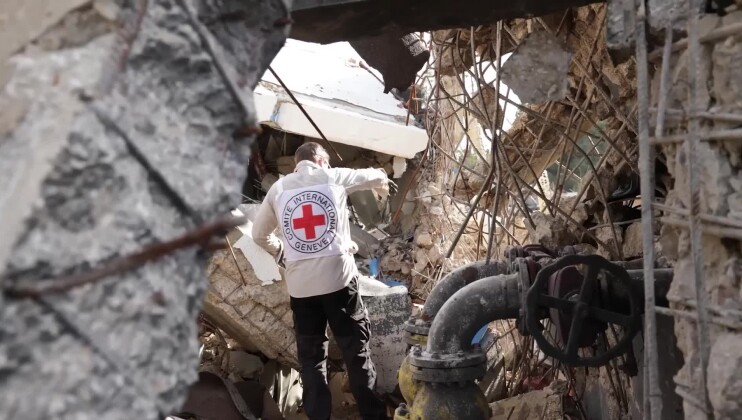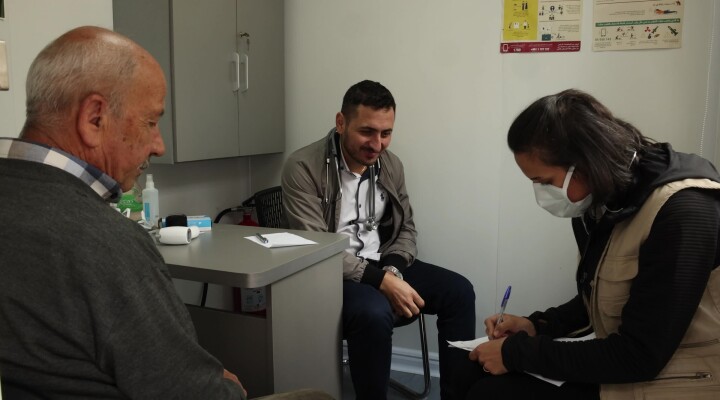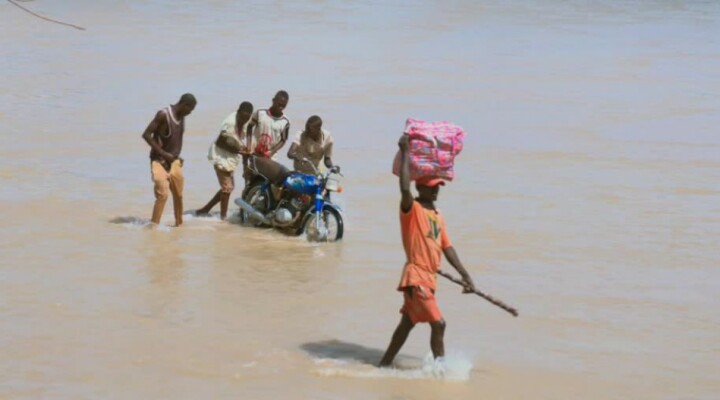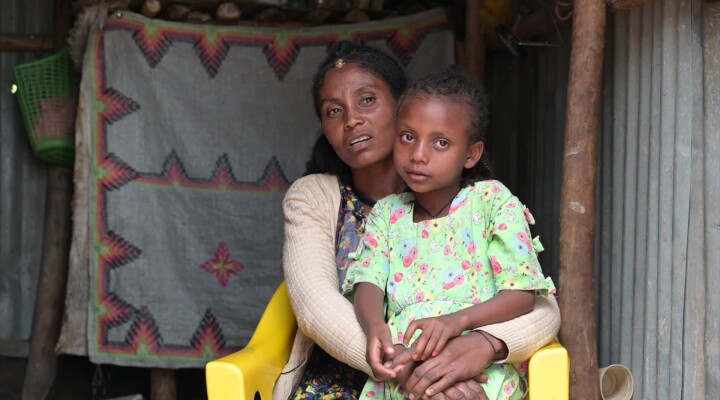Libya: migrants stranded at Egyptian border
Almost a hundred thousand migrants have already flocked from Libya through the overcrowded border crossing near the town of Sallum in Egypt.
Two thirds of them are Egyptians returning home but the remainder are mostly foreign labourers from neighbouring African countries, many of whom have had to leave without any valid travel documents. In most cases their hard earned money and all personal belongings have been left behind. At the border crossing, the International Committee of the Red Cross has set up an office to help those stranded here, especially those travelling with their families - people like Adam from Ghana:
"I've been here 4 days today. The first day, too much cold here, we did not sleep... Even water, we are struggling to get water."
Abdallah from Sudan has a similar story to tell:
"It's very cold. I have been here for two days and two nights. I am with my wife and our 3-year-old child. I want to go to my hometown in Sudan as fast as possible by any possible way. I am begging our Embassy to move as fast as it can to get us safely back home. ".
A team of Egyptian Red Crescent volunteers is handing out food rations to thousands of people every day but as the numbers crossing the border fluctuates, it is difficult to estimate needs.
Islam Mohamed of the Egyptian Red Crescent explains (Arabic): "Our problem is that we are working on prediction. We are not working on definite numbers. For tomorrow for example, we are estimating the number of arrivals only by the news we hear about the situation across the border in Libya".
Many have been stranded here for days now as they try to get valid travel documents to get back to their home countries. Nationals of countries, mostly Sub-Saharan, that have not sent their embassy representatives to the border or do not have permanent representation in Egypt are finding it hard to acquire the necessary papers. Working alongside the International Organization for Migration, ICRC delegates are helping those stranded to contact their country representatives to get the green light to issue them temporary travel documents which will take them through the border.
As Samir Hadzimustafic of the ICRC explains : "The majority of the ICRC activity here is concerning unaccompanied minors, restoring family links with people who have lost contact with their families and issuing travel documents to the people who are stranded here at the border because there is no country representative in Egypt."
It has taken a lot of patience and days and nights stranded in the cold but when the necessary papers do arrive, the lucky few are relieved to be on their way home.
MPEG2/Broadcast Quality Video and complete dopesheet are available for preview and download.



